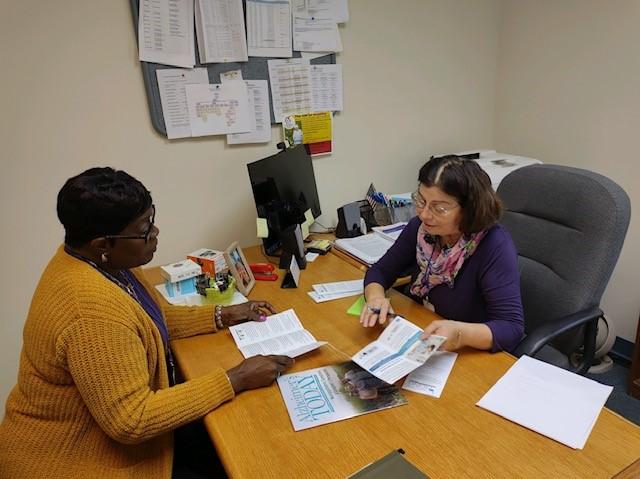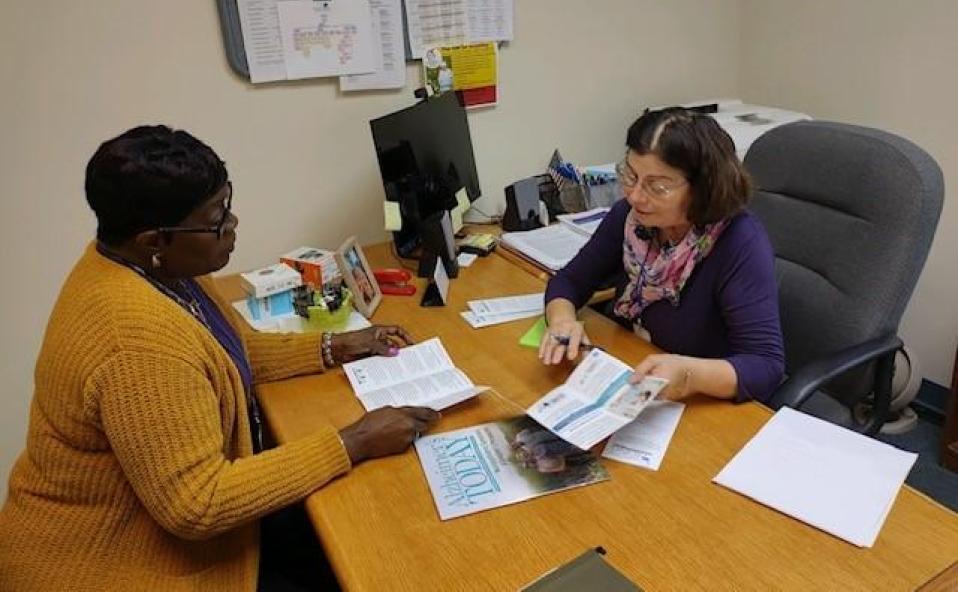Advocating for a senior or learning to navigate the world of home care, an assisted living facility, or a nursing home can be a daunting task. Upper Shore Aging (USA) offers several programs in Caroline, Kent, and Talbot counties to assist individuals and families protect the safety, welfare, and rights of seniors. One of the programs that the organization is currently seeking a manager for is its Long-Term Care Ombudsman Program. The ombudsman investigates and advocates to resolve complaints from residents in nursing homes and assisted living facilities.
“Our Long-Term Care Ombudsman Program plays such an important role in being the eyes and ears for our senior population and people of all ages, who may be experiencing issues in an assisted living facility or nursing home. The ombudsman in the county is the advocate for people in helping them resolve their complaints, but also develops relationships with these facilities to improve the quality of life for residents there,” states Andy Hollis, Executive Director of USA.
“Recently, we have had to rely on the State’s representatives to oversee this role because we have not had this position filled locally. While the State has provided excellent support, residents on the Mid-Shore need to have an advocate locally who can work with these facilities regularly to address concerns and issues as they develop.”

Pictured is Mary Sellers, Family Caregiver Program Manager & Guardianship Program Manager for Upper Shore Aging, talking with a family member about services. Upper Shore Aging is currently seeking a manager for its Long-Term Care Ombudsman Program. The ombudsman investigates and advocates to resolve complaints from residents in nursing homes and assisted living facilities.
According to Stevanne Ellis, State Long-Term Care Ombudsman for the Maryland Department of Aging, the Long-Term Care Ombudsman Program is a program under the Older Americans Act.
“Whether you are in a nursing home for short-term rehabilitation or a longer stay, the ombudsman in the county is the advocate for that person. The ombudsman provides a minimum of monthly nursing home visits and quarterly assisted living visits. The ombudsman also responds to any complaints or requests between these visits. We have more than 1800 assisted living facilities and 227 nursing homes,” Ellis states.
“During these visits, we go and see how the resident is doing and what life is like for them. We want the resident to know that if he or she has a complaint, then we can help resolve the complaint to their satisfaction. Complaints can range everything from issues related to the building to hands-on care to staffing to cold coffee to physical and emotional abuse. We are also available to help people navigate the long-term care system, which can be complicated and confusing at times.”
She adds, “There are some facilities that they see us as a big help. We are focused on the same thing – that their residents are happy, receiving good care, and want to stay in the facility. That’s what we advocate for.”
In getting issues resolved, the ombudsman’s goal is first to empower residents – to help them figure out how to take care of their issues first. And if this is not successful, the ombudsman can go with residents to address concerns or get permission to talk to facilities without the resident being present. The majority of complaints are initiated by residents and residents’ families; however, friends, family, physicians, and ministers also can make complaints on behalf of the resident.
The Ombudsman Program Manager position provides leadership and direction for the Ombudsman Program, overseeing operations, fiscal performance, and effectiveness of the program. In addition to investigating and resolving resident complaints, the ombudsman provides educational training and information presentations to residents, staff, and members of the community on resident rights, services available, and good health and safety practices.
“The position requires someone who cares about residents and genuinely has a passion for helping people in long-term care and helping families. I think the ombudsman job is a prestigious thing because it’s a form of social justice. By making the world a better place, you’re going to have the satisfaction that you truly made a difference in the quality of life for someone,” comments Ellis.
Other qualities of an ombudsman include an interest to learn new things, experience in health care or working with the aging community, a mediation background, strong community relations skills, and experience with volunteer recruitment and retention. Preferred qualifications for the position include a bachelor’s degree in human services, social work, or nursing and five to eight years of working with the elderly population providing case management.
The Department of Aging offers a comprehensive Ombudsman Training Program and there are mentors available to support the local ombudsman from the State.
Mary Sellers, Family Caregiver Program Manager & Guardianship Program Manager for USA sees the Ombudsman Program as an extension of her work in assisting individuals and families to keep seniors in their own homes or helping them when a family member has been discharged from a nursing home. She states, “My programs help connect seniors and families to community resources when they are living independently. The Family Caregiver Program is preventive service to connect families to community resources to help keep them in their own homes or help them when a family member has been discharged from a nursing home.”
“Through our Family Caregiver Program, Guardianship Program, and Long-Term Care Ombudsman Program, our hope is we can also offer families important information about resources ahead of time, before they need it for a loved one, and to ensure seniors get the best care in whatever situation they find themselves,“ Hollis adds.
For further information about applying for the Ombudsman Program Manager position, contact Andy Hollis at (410) 778-6000. For further information, visit uppershoreaging.org.
Upper Shore Aging, Inc. is a nonprofit 501(c)(3) organization that is the designated Area Agency on Aging for Talbot, Caroline, and Kent counties, Maryland, serving a potential market of nearly 31,000 persons over the age of sixty years. The organization develops and manages a coordinated program of services that work together to help elders to remain, and live well, in the community for as long as possible. Upper Shore Aging, Inc. works closely with the Maryland Department of Aging to serve the needs of its clients.



Write a Letter to the Editor on this Article
We encourage readers to offer their point of view on this article by submitting the following form. Editing is sometimes necessary and is done at the discretion of the editorial staff.